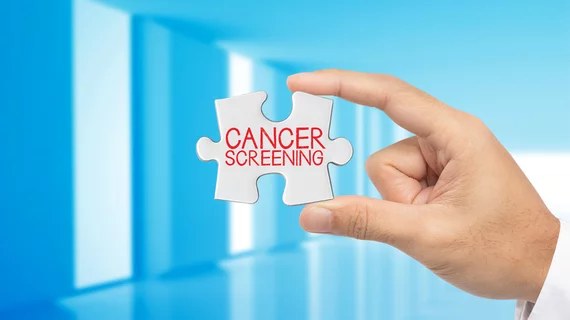Majority of patients say cancer screening should not be based on life expectancy
A majority of older adults between the ages of 50 and 80 years old disagree with using life expectancy to guide national cancer screening guidelines.
Answering a provocative questionnaire from the University of Michigan's National Poll on Healthy Aging, 62% of respondents said how long a person might have left to live should not determine if they should undergo cancer screenings such as mammograms and colonoscopies.
Current screening guidelines aim to help healthcare providers recommend cancer screening tests based on medical evidence – and according to a release from the university, national organizations have started to consider life expectancy, weighing increasing risks with age and what it means to detect cancer “early” as a patient ages.
The age-based guideline proposals also benefit insurance companies looking to cut costs.
The poll was fairly one-sided. Even among older adults characterized as "medical minimizers," a majority (57%) disagreed with using life expectancy in cancer screening guidelines. Additionally, 70% of respondents didn't see it as a problem if some chose to undergo screenings not recommended by clinical guidelines.
Defining 'life expectancy' as more than age
There is word play at work here between competing ideologies, with some conflation of "age" and "life expectancy". While one way to define “life expectancy” is to look at how old a person is, another way is to cater the idea to a patient’s individual health history and background.
“Personalizing cancer screening decisions to each patient’s health situation, rather than using one-size-fits-all age cutoffs, could benefit both very healthy and less healthy patients in different ways,” said Brian Zikmund-Fisher, PhD, U-M School of Public Health who worked on the poll.
As a result, he notes, “many guidelines recommend considering the patient’s life expectancy.”
“But when it comes to a discussion between a health care provider and an individual patient, personalizing the cancer screening decision essentially means talking about how long that person is expected to live," he added. “It also means sometimes deciding that not doing a screening is actually the healthiest approach.”
When asked in the poll about using a 10-year life expectancy limit as a target for rationing resources, 55% considered it appropriate and 27% deemed it too short.
The uncertain future of cancer screening guidelines
The poll results have significance, especially in light of a federal court case that effectively struck down mandatory insurance coverage for cancer screenings, in part citing national guideline recommendations.
Depending on how it plays out in future court hearings, insurers could set their own coverage standards and costs going forward, effectively developing their own clinical best practices.
Further, cancer screening guidelines may evolve as new evidence emerges. For example, a draft proposal from the U.S. Preventive Services Task Force, a national organization that impacts the development of clinical guidelines, lowers the age for starting mammograms to 40, but still finds insufficient evidence for screening women over 75.
Race, gender impact poll results
The poll revealed differences in perspectives based on gender and ethnicity, with stronger disagreement among women and men of all races being most notable: 66% of women disagreed that the guidelines should use life expectancy in determining the age at which to recommend stopping screening, compared to 57% of men.
However, Black men were more likely than both white and Hispanic men to “strongly disagree” with stopping screening based on life expectancy. Yet, white adults (men and women) were least likely to think it’s wrong for patients to receive cancer screenings against guideline recommendations, coming in at 77% versus 61% for Blacks and Hispanics.
The poll was supported by the AARP and Michigan Medicine, the University of Michigan’s academic medical center. The results are from 2,563 adults surveyed over the phone, with demographics weighed to match the U.S. population.

